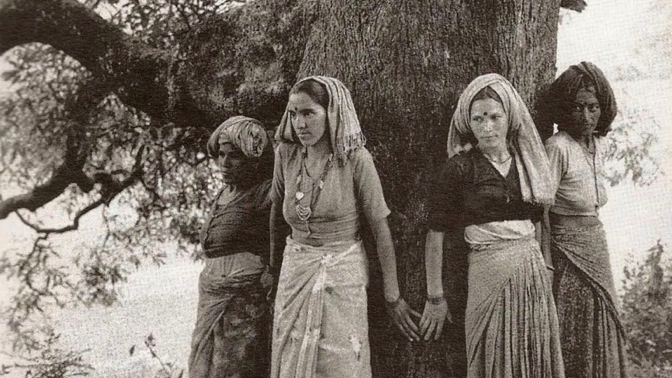The Water Protectors at Standing Rock are very much on our minds.
Of course we’re celebrating the news that the Army Corps of Engineers has denied Energy Transfer Partners permits to continue construction through Lake Oahe, but we are still donating supplies and sending prayers of support.
Why? Hundreds of waterways are still under threat, the pipeline investors have issued a statement that they’ll proceed anyway, and the incoming US President—a financial stakeholder—has made it quite clear where he stands on the issue. It’s not over yet.
We can’t help but draw parallels with the stand-off in North Dakota and an historic event in The Seeds of Vandana Shiva. We want to share that story with you because despite seemingly insurmountable odds, in time the peaceful protestors prevailed.
We’re talking about Chipko—the historic Tree-Hugging movement—that began in the Himalayan forests where Vandana grew up. In 1973, a small group of indigenous tribal women rose up in non-violent resistance to the reckless deforestation of their ancestral homes. Rampant commercial logging was destroying their lives, including the soil and water on which they depended.
Just as the First Americans at Standing Rock today stand between their precious water and DAPL construction crews, the women of Chipko stood between their precious trees and the logging machines. A young Vandana Shiva played a key role, communicating in English what was happening to the outside world.
Here’s a short clip from a rough-cut of the film to give you an impression:
Think about it: Without the Internet, cell phones, video cameras or social media, a motley resistance started by a small group of women grew into an international movement that became a precedent for non-violent protest across the globe.
In the end Prime Minister Indira Gandhi issued a state order that banned logging in the Himalayas. Better yet, this was followed by programs to restore ecological health to the forests and waterways.
The Tree Huggers prevailed. The Water Protectors can too.
